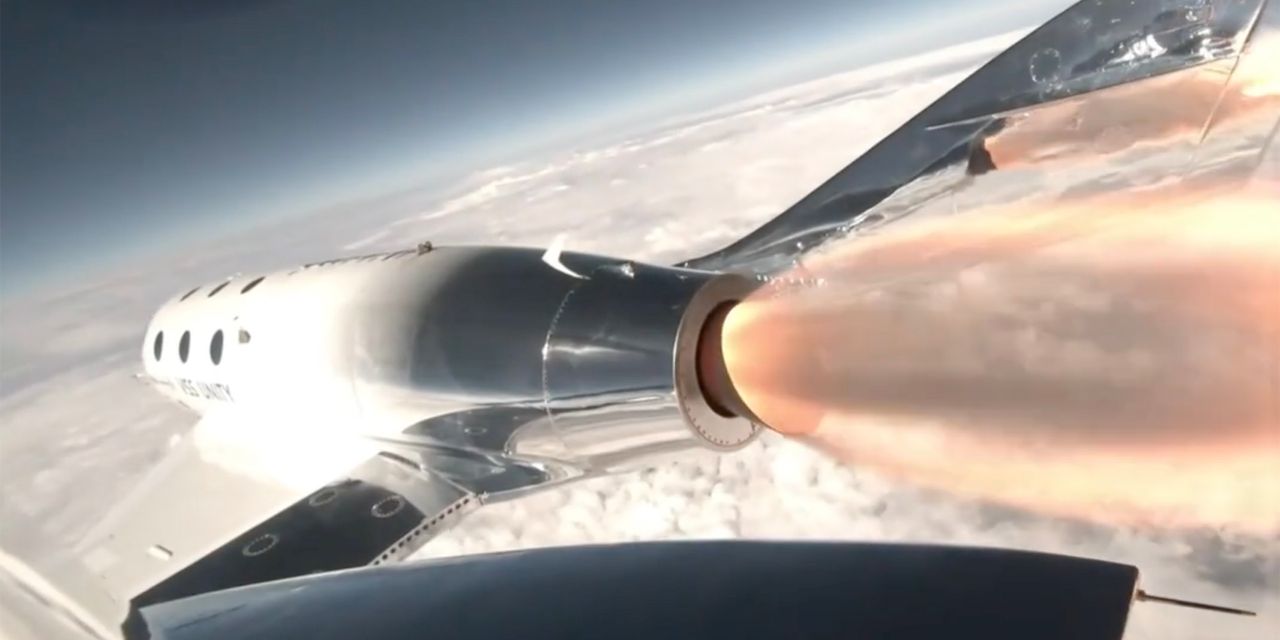Virgin Galactic’s first commercial spaceflight launched successfully on Thursday, taking a crew from the Italian Air Force and the National Research Council of Italy on a 75-minute trip to the edge of space.
The flight, dubbed Galactic 01, marks the start of commercial service for the space tourism pioneer after a series of delays.
Shares (ticker: SPCE) fell sharply on the news, declining roughly 13% to $4.13, after trading higher earlier in the day. The stock market often “buys the rumor and sells the news.” That’s what happened during the company’s last high-profile launch.
For comparison, the
S&P 500
and
Dow Jones Industrial Average
were both higher in midday trading.
A double-hulled mother ship took the Galactic spacecraft to 44,500 feet before dropping it, according to a company press release. The craft, called Unity, then lighted its engine and accelerated to about Mach 2.88, or almost three times the speed of sound, traveling about 52.9 miles above the surface of the Earth. After passengers experienced weightlessness, the ship glided back to Spaceport America in New Mexico.
It was an exciting event and investors were optimistic. A live stream of the flight went live at around 11 a.m. Eastern time.
Prior to the flight, shares had gained $1.28, or 37%, over the past month, as of the market close on Wednesday. A similar pattern emerged when Virgin Galactic founder Richard Branson went to the edge of space almost two years ago in July 2021.
Virgin Galactic shares rose 40%, from about $35 to $45 a share, the month headed into the flight, but that gain didn’t last. The stock closed below $35 just three days after the flight, the latest bit of evidence that the stock market is forward-looking and that good news can be reflected in prices ahead of an expected event.
Virgin Galactic stock has declined around 90% since Branson flew. A series of regulatory and equipment-related delays pushed out the start of commercial service much further than expected. And higher interest rates, which make funding start-up companies more expensive, have sapped investors’ enthusiasm.
In the long run, earnings and cash flow will determine how Virgin Galactic stock trades. In the short run, investors should watch out for a stock dip, even with a successful first flight.
With the start of service, Wall Street projects about $12 million in 2023 revenue for the company. Positive earnings and free cash flow aren’t projected until the end of the decade when annual sales reach roughly $700 million. Analysts also project Virgin Galactic will spend roughly $1 billion between now and the end of the decade before the business becomes self-sustaining.
Write to Emily Dattilo at [email protected] and Al Root at [email protected]
Read the full article here




